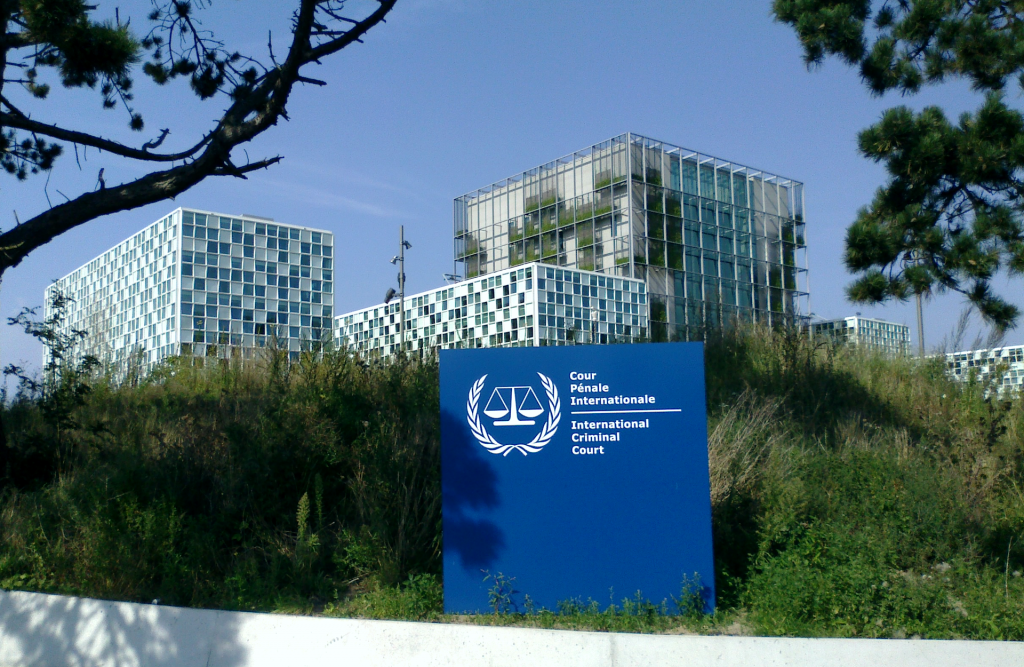
Since its founding in 2002, the International Criminal Court (ICC) has prosecuted almost exclusively Africans. This has led to charges of racism, and some African governments have threatened to withdraw from the court. In this episode of Declarations, Adam Branch, Georgina Epure, and Surer Mohamed join host Scott Novak to talk about the perceived bias of the court, victim and saviour discourse, and the future of the ICC.
The panelists begin the podcast with a discussion of the origins of the ICC. Planned in the heady optimism of the 1990s, the court officially began its duties in the War on Terror world of 2002. The tensions between its mission to enforce universal laws, its lack of enforcement mechanisms, and its operation in a world of violent power politics have plagued the court since 2002. It has thus avoided stepping on the toes of powerful states, and prosecuted mainly weaker parties in African states.
The panelists next discuss implicit racism and the ‘white saviour’ complex behind the African ‘voiceless victim’ discourse surrounding the ICC. Adam Branch advocates for a shift from talking about ‘victims’ to talking about ‘survivors’ of war crimes: ‘think about not voiceless victims needing an international court to come in and rescue them and give them voice and bring them justice but rather think of survivors who themselves are debating and organising and trying to figure out for themselves what justice means, what peace means, how to bring these about.’
Finally, the panelists discuss different conceptions of justice, from retributive justice to transitional justice and transformative justice, and question whether the ICC understands the subtleties of the regions in which it operates. This leads into a discussion of the planned African Criminal Court, the future of the ICC, and the web of international, regional, and national criminal justice systems, and the observation that ‘the ICC will have succeeded when it has no cases before it’.
Key Links:
- Rome Statute Text: https://www.icc-cpi.int/resourcelibrary/official-journal/rome-statute.aspx
- International Criminal Court: https://www.icc-cpi.int/
- ICC List of Cases: https://www.icc-cpi.int/Pages/cases.aspx
- Genocide Convention of 1948: https://www.ohchr.org/en/professionalinterest/pages/crimeofgenocide.aspx Adam Branch on ‘The ICC’s African Dilemmas’: https://academic.oup.com/ijtj/article-abstract/11/1/30/2919404
Guests:
Dr. Adam Branch is a lecturer at the Department of Politics and International Studies at the University of Cambridge, a fellow of Trinity Hall, and Director of the Cambridge Centre of African Studies. He has written extensively about the International Criminal Court and African Politics.
Georgina Epure and Surer Mohamed are MPhil students in International Relations and Politics at the University of Cambridge. Georgina’s research focuses on the responsibility to prosecute. She is the founder and editor in chief of the student journal Responsibility to Protect. Surer researches transitional justice, critical theory, and the horn of Africa.
